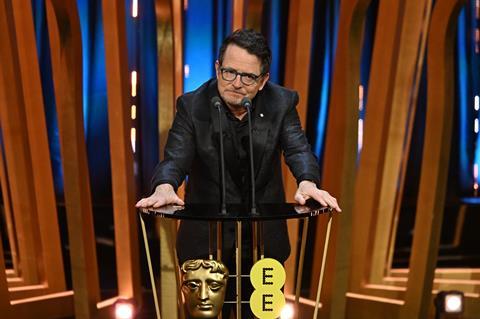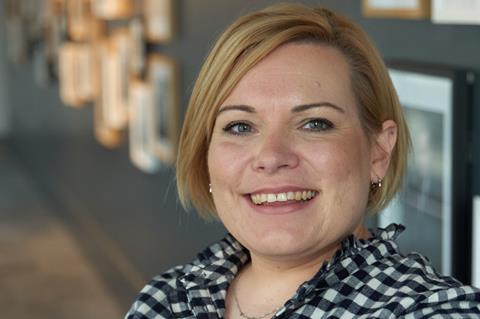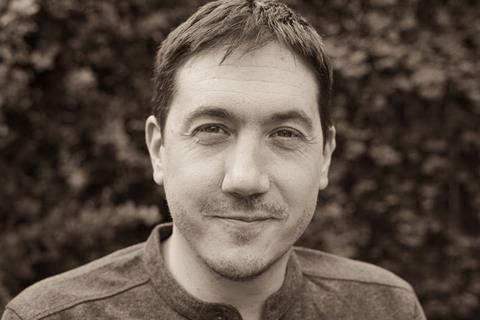
When Michael J. Fox, Back To The Future star and Parkinson’s research advocate took to the stage to announce the best film winner at this year’s EE Bafta Film Awards, it was a symbolic moment for Bafta in its quest for inclusion and accessibility across its membership body and all of its events.
Aside from presenting the best film plaudit, Fox was nominated for best documentary for Still: A Michael J. Fox Movie, the Davis Guggenheim-directed biopic which recounts Fox’s 1980s rise to hard-partying Hollywood superstardom, the difficult years that followed his diagnosis with Parkinson’s in 1991, aged 29, and his life dealing with sobriety and his degenerative disease.
Fox’s appearance at the awards may not have been possible but for Bafta’s aim to put accessibility and inclusion at the heart of everything the organisation does. Throughout the membership, Bafta works to ensure d/Deaf, disabled and neurodivergent people have a voice in its decision-making, and for its audiences, the organisation tries to ensure access adjustments are either available as standard or are simple and easy to request.
Lucy Waller, Bafta’s head of events, explains the ambition is for every interaction with Bafta to be as valuable, enjoyable and comfortable as possible, whether for audiences watching the Bafta awards shows at home, on streaming (games) or the BBC (film and TV) or for members attending one of its myriad events and taking part in one of Bafta’s talent development initiatives.

“There must be a visible ramp to stage, especially for the broadcast events,” says Waller. “I want people at home to see that and think, ‘I belong on that stage’. They might then think about getting into a career in TV or film or games because they have seen a person like them on stage.”
Since 2020, Bafta has worked with its own Disability Advisory Group as well as TripleC, the TV Access Project (TAP) and external consultants to garner feedback and make adjustments to the way it delivers awards and activities.
Actor-director-writer David Proud, a Bafta film committee member who is also a wheelchair user, was part of the discussions about how attending events can be problematic for people with access issues. “I was moved to tears when I spoke to Bafta’s Disability Advisory Group,” he recalls. “I was overwhelmed that such a big organisation like Bafta would actually take inclusion that seriously and say, ‘If disabled people can’t get on that stage, then that’s not a stage we want’.”
Two years ago, Bafta moved its film awards from the Royal Albert Hall (built in 1871), with its myriad steps and tight corridors, to the altogether more accessible Royal Festival Hall (built in the late 1940s). Previously, the Royal Opera House had also created multiple access issues when Bafta held the film awards in its Georgian buildings.
Beyond ensuring its physical spaces from the stage to the red carpet are fully accessible, Bafta is is committed to ensuring all d/Deaf, disabled and neurodiverse audiences are welcome and comfortable at its awards. Every attendee is asked to share any access adjustments they require ahead of attending events, with British Sign Language available to all who require it. Face-to-face calls are made to reassure and exchange as much information as possible and on arrival at the event, a Bafta chaperone is on hand to guide guests throughout. A dedicated quiet space is also provided.
“The red carpet is now fully accessible from start to finish and Bafta always has a representative there,” Proud adds. “The difference between now and before 2020 is night and day.”
Bafta is working to encourage more d/Deaf, disabled and neurodivergent people to apply to join its membership with an attention to detail that ensures application forms are accessible, both technically and in the tone and language used, and with alternative formats available.
It also accepts video submissions and provides scribing support.

Samantha Tatlow, creative diversity partner at ITV and chair of Bafta’s Disability Advisory Group, is a long-standing Bafta member and was part of the 2020 diversity and inclusion review that noted disability, and the needs of disabled people, had to be much better recognised.
“Bafta has been brilliant at enacting so many of those recommendations,” affirms Tatlow. “We’re now starting to see the fruits of that labour, whether that’s at the film awards, who is presenting awards, but also just generally, in and around the building and at Bafta events.”
For Tatlow, the ultimate aim is for more disabled people to win Bafta film awards. “The efforts Bafta has made shows that if an organisation is committed to making the change, then it will happen. I encourage everybody not to be afraid to start that journey, because Bafta is showing that it’s possible.”
Waller hopes Bafta’s efforts will mean more people with disabilities enjoying careers in the industry. “That might mean coming to our events, meeting people and networking,” she says. “They might discover a new opportunity, having come to one of our accessible events, which one day results in them being on that Bafta stage.”
Bafta is open for applications for new members and welcomes applications from d/Deaf, disabled and neurodiverse people working in film, games and television. Find out more at www.bafta.org/about/membership



























No comments yet